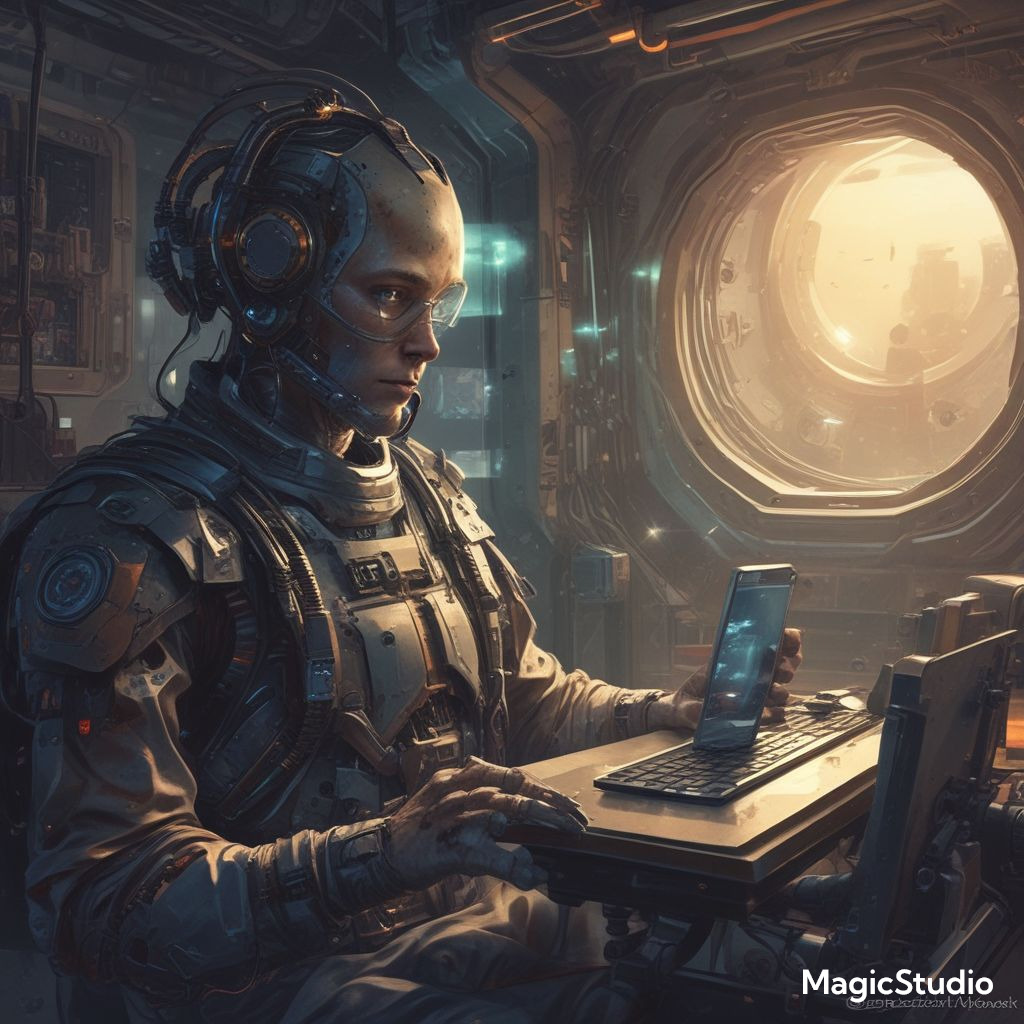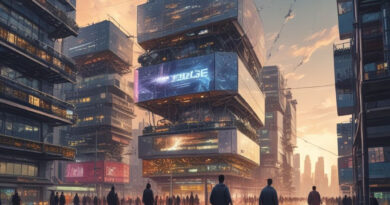The Future of Technology in 2025: What to Expect

The world of technology is constantly evolving, with new innovations emerging at an unprecedented pace. As we look ahead to 2025, several cutting-edge technologies are set to reshape industries, enhance everyday life, and revolutionize the way we interact with the digital world. In this post, we will explore the key technology trends that will define the next few years.
1. Artificial Intelligence and Machine Learning
Artificial Intelligence (AI) and Machine Learning (ML) have already made a significant impact across various industries, but their potential is far from being fully realized. By 2025, these technologies will become even more ingrained in our daily lives.
What to expect in 2025:
- Smarter AI Assistants: AI-powered personal assistants will become more intuitive and able to manage a broader range of tasks, from personal scheduling to managing smart homes.
- Advanced Machine Learning Algorithms: Machine learning will continue to improve, enabling businesses to predict customer behavior, automate processes, and enhance decision-making with more accuracy.
Why it matters: The growth of AI and ML will lead to more efficient workflows, better customer experiences, and smarter devices. Industries like healthcare, finance, and marketing will benefit from improved data analysis, personalization, and automation.
2. 5G Technology and the Internet of Things (IoT)
5G networks are expected to roll out globally in the coming years, bringing faster internet speeds, lower latency, and more reliable connectivity. This will unlock the full potential of the Internet of Things (IoT), enabling billions of devices to communicate seamlessly.
What to expect in 2025:
- Faster Internet and More Devices: With 5G, we’ll see significant improvements in the speed and reliability of internet connections. This will allow everything from autonomous vehicles to smart home devices to function more effectively.
- Massive IoT Expansion: Smart cities, smart homes, and connected devices will become a common part of daily life, making everything more efficient and automated.
Why it matters: 5G and IoT will drive new opportunities for businesses to innovate and create new products and services. Consumers will benefit from improved connectivity, whether for personal use (e.g., smart appliances) or business purposes (e.g., real-time data analysis).
3. Quantum Computing
Quantum computing is still in its early stages, but by 2025, we could see major advancements in this groundbreaking technology. Quantum computers have the potential to solve complex problems at speeds unimaginable with traditional computers.
What to expect in 2025:
- Enhanced Computing Power: Quantum computers will begin to handle complex calculations that current computers can’t even begin to process, including simulations of molecular structures for drug development, optimization problems, and advanced AI processing.
- Better Encryption: Quantum cryptography will revolutionize cybersecurity, offering virtually unbreakable encryption methods that protect sensitive data from cyber threats.
Why it matters: Quantum computing will unlock new possibilities for research, business optimization, and security. Industries like pharmaceuticals, materials science, and cybersecurity will benefit the most from these advancements.
4. Augmented Reality (AR) and Virtual Reality (VR)
AR and VR are set to change how we interact with the world around us. While VR has primarily been used for entertainment and gaming, AR is gaining traction as a tool for both business and consumer applications.
What to expect in 2025:
- Immersive VR Experiences: VR will be more widely adopted for training, education, and entertainment, providing users with immersive, interactive experiences.
- AR in Daily Life: Augmented reality will be integrated into smartphones, glasses, and other wearables, enhancing everything from navigation to shopping. Imagine being able to see product details and reviews just by pointing your phone at an item in a store.
Why it matters: AR and VR will redefine user experiences in sectors like retail, real estate, healthcare, and education. Businesses will use AR and VR for virtual tours, product demonstrations, and more interactive marketing campaigns.
5. Blockchain and Decentralized Technologies
Blockchain technology is primarily associated with cryptocurrencies like Bitcoin, but it has much broader applications. As blockchain continues to evolve, its potential to disrupt industries beyond finance is becoming more apparent.
What to expect in 2025:
- Blockchain for Secure Transactions: Blockchain will be used more widely in industries such as finance, supply chain management, and healthcare to ensure secure, transparent transactions.
- Smart Contracts and Decentralized Apps (DApps): Decentralized applications will become mainstream, allowing users to interact with services without relying on central authorities, making transactions more efficient and secure.
Why it matters: Blockchain promises to streamline processes, reduce fraud, and increase transparency across various industries. Businesses will adopt blockchain to improve data integrity and trust, especially in finance, healthcare, and legal sectors.
6. Robotics and Automation
Automation and robotics have been steadily gaining momentum in industries like manufacturing and logistics. By 2025, robots will become more integrated into everyday life and the workforce.
What to expect in 2025:
- Robots in Healthcare: Robotic surgeries and automated diagnostics will become more common, improving precision and patient outcomes.
- Self-Driving Vehicles: While fully autonomous cars are still in development, 2025 could see more self-driving cars on the road, especially in controlled environments such as cities and delivery services.
- Automation in the Workplace: From warehouses to offices, robots and AI will handle routine tasks, allowing employees to focus on more creative and strategic work.
Why it matters: Robotics and automation will lead to increased productivity and efficiency across many sectors. However, businesses must also address challenges such as workforce displacement and the need for new skills in the job market.
7. Edge Computing
Edge computing is designed to bring data processing closer to where it’s generated, rather than relying on a centralized cloud server. This approach reduces latency and bandwidth usage, which is critical for real-time applications.
What to expect in 2025:
- Faster, More Efficient Data Processing: With edge computing, devices will process data locally, making real-time decision-making faster and more reliable.
- Smarter IoT Devices: IoT devices will become smarter, with built-in processing capabilities that reduce dependence on cloud-based systems and improve efficiency.
Why it matters: Edge computing is essential for applications that require low latency, such as autonomous vehicles, remote healthcare monitoring, and industrial automation. It will allow industries to deploy real-time solutions without relying on distant data centers.
Conclusion: The Road Ahead
The next few years will be pivotal for technology as we move toward 2025. With advancements in AI, 5G, quantum computing, AR/VR, blockchain, and more, the possibilities are endless. As these technologies mature, they will not only improve existing processes but also create entirely new industries and job opportunities.
Staying informed about these developments will be crucial for businesses, tech enthusiasts, and anyone looking to adapt to the rapidly changing world of technology. The future is bright, and the innovations of 2025 are just the beginning.



